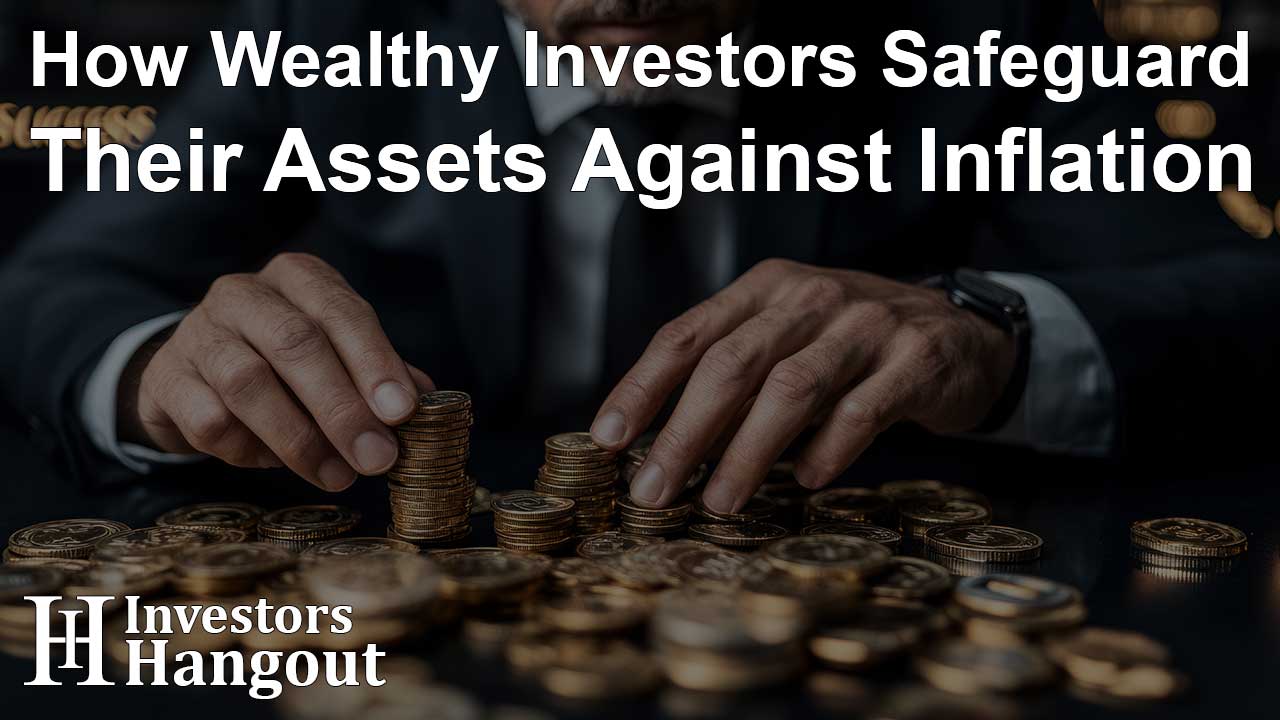How Wealthy Investors Safeguard Their Assets Against Inflation

Inflation refers to the gradual increase in the price of goods and services. It impacts the purchasing power of money. It’s a long-term economic factor that can drastically reduce the value of your investments. Simply put, inflation reduces the value of your money tomorrow compared to today.
Wealthy investors typically work with an advisor, such as family office services, to strategize their investments and reduce the adverse impact of inflation on their wealth. They primarily focus on preserving capital and maintaining purchasing power over a long period. In this post, we will discuss some practical steps many investors take to safeguard their assets against inflation.
What is the Inflationary Threat
Inflation represents a decline in the value of currency. For example, if inflation is at 3%, it means that $100 today will only have the purchasing power of $97 next year. Over longer periods, this decline becomes substantial as it compounds every year. For investors, this means a lower return on their investments. If an investment earns 5%, but inflation is 3%, the actual return is only 2%. This draws attention to the importance of earning returns that exceed inflation.
Build an Inflation-Resistant Portfolio
High net worth (HNW) and ultra-high net worth (UHNW) investors protect their investments by strategically allocating their assets. This means they diversify their portfolios across various asset classes. By doing this, they try to reduce the negative impact of rising prices. The following list contains examples of the types of assets investors consider when diversifying their portfolios:
-
Real Estate:
Some investors view real estate as a strong inflation hedge because property values and rental income tend to rise with inflation. Investing in income-producing properties can offer consistent cash flow and appreciation.
-
Equities (Stocks):
Although the stock market can experience short-term volatility, returns on equities have historically surpassed inflation over the long term. Investing in companies with high brand recognition and strong pricing power can help mitigate the possible adverse effects of inflation.
-
Commodities:
Assets like gold, silver, and other commodities tend to perform well during inflationary periods as their intrinsic values tend to rise. This is because they are essential inputs for the production of various goods and services.
-
Alternative Investments:
Private equity, venture capital, and hedge funds provide different opportunities to grow wealth while mitigating inflation risks.
-
Treasury Inflation-Protected Securities (TIPS):
TIPS are U.S. Treasury bonds whose principal is adjusted based on changes in the Consumer Price Index (CPI). This means that the principal amount of the bond increases with inflation, offering a direct hedge. While the returns may be more modest than those of other asset classes, TIPS offers a relatively low-risk way to protect against inflation.
Other Investment Strategies to Consider
Strategic asset allocation is just a part of the investment strategy. However, wealthy investors also employ other strategies to protect their wealth further. These are:
-
Debt management
-
Cost control
-
Tax optimization
-
Long-term financial planning.
Inflation can reduce the actual value of fixed-rate debt. This means that if you have a fixed-rate mortgage, the amount you owe decreases over time as prices rise. However, be cautious with variable-rate debt, as rising interest rates can increase borrowing costs. Reducing unnecessary spending will also help preserve capital. You must note that inflation can push investors into higher tax brackets.
How Much Inflation Should You Plan For?
This is an important question, but unfortunately, there’s no definitive answer. Factors like economic growth, monetary policy, and global events influence inflation. However, investors use several benchmarks and strategies to make reasonable assumptions:
-
Historical Average:
Historical inflation data provides a general idea of long-term trends. In the United States, the average annual inflation rate over the past century has been around 3%. However, this is just an average; inflation can fluctuate from year to year.
-
Central Bank Targets:
Many central banks, including the Federal Reserve in the U.S., have specific inflation targets, which are typically around 2%. These targets are a benchmark for expected inflation over the medium term. However, central banks do not always achieve their targets, and unforeseen economic events can cause actual inflation to deviate from expectations.
-
Forward-Looking Indicators:
Economic forecasts, economist surveys, and market-based indicators like Treasury Inflation-Protected Securities (TIPS) provide insights into future inflation expectations. TIPS is particularly helpful, as the difference between the yield on a nominal Treasury bond and a TIPS of the same maturity shows market expectations related to inflation over that period.
Take a Proactive Approach to Wealth Preservation
During inflationary periods, it can be challenging to understand where to invest or if you are making the right investment decision at all. In such situations, you need expert advice from a qualified financial advisor, wealth manager, or family office. They will guide you through specific financial situations and goals. Ultimately, you can protect your assets and preserve your purchasing power, just like wealthy investors.
About The Author
Contact Riley Hayes privately here. Or send an email with ATTN: Riley Hayes as the subject to contact@investorshangout.com.
About Investors Hangout
Investors Hangout is a leading online stock forum for financial discussion and learning, offering a wide range of free tools and resources. It draws in traders of all levels, who exchange market knowledge, investigate trading tactics, and keep an eye on industry developments in real time. Featuring financial articles, stock message boards, quotes, charts, company profiles, and live news updates. Through cooperative learning and a wealth of informational resources, it helps users from novices creating their first portfolios to experts honing their techniques. Join Investors Hangout today: https://investorshangout.com/
